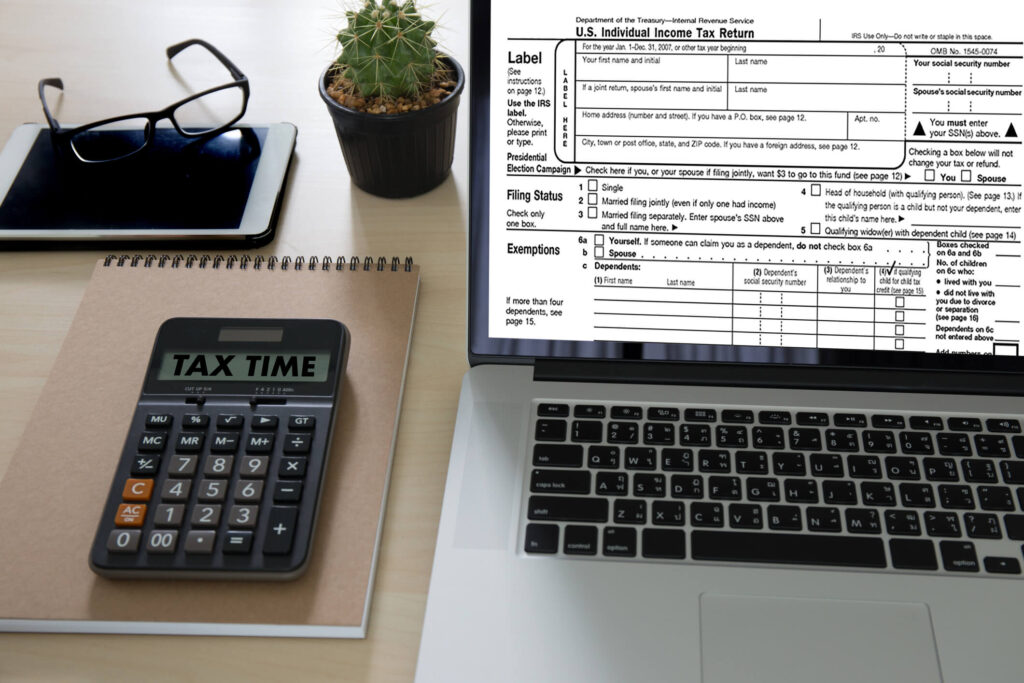Best Credit Card Processing Solutions Tailored for Every Industry

By admin May 8, 2024
The tax season can be a stressful time for many individuals and businesses. However, the anticipation of receiving a tax refund can help alleviate some of that stress. To ensure a smooth refund process, it is essential to understand the journey of your tax return from acceptance to approval. In this comprehensive guide, we will explore the factors affecting IRS refund approval time, the typical timeframe for approval, and tips for expediting the process.
The Journey of Your Tax Return: From Acceptance to Approval
Once you file your tax return, the IRS goes through a series of steps to process and approve your refund. The journey begins with the acceptance of your tax return. When you electronically file your return, the IRS typically acknowledges receipt within 24 hours. If you file a paper return, it may take longer for the IRS to process and accept it.
After acceptance, the IRS begins to review your return for accuracy and completeness. This review includes verifying your income, deductions, and credits claimed. The IRS may also cross-reference your return with information received from employers, financial institutions, and other third parties. This process ensures that taxpayers are reporting their income and claiming deductions and credits correctly.
How Long Does It Take for the IRS to Accept Your Tax Return?
The time it takes for the IRS to accept your tax return can vary depending on several factors. Generally, if you file electronically, the acceptance process is faster compared to filing a paper return. Electronic filing allows for automated data entry and reduces the chances of errors, making it easier for the IRS to process your return.
For electronically filed returns, the IRS typically accepts them within 24 to 48 hours. However, during peak filing season, such as in the months leading up to the April 15 deadline, it may take longer for the IRS to accept your return due to the high volume of submissions.
On the other hand, if you file a paper return, the acceptance process can take significantly longer. It may take up to six to eight weeks for the IRS to process and accept your paper return. This is because paper returns require manual data entry, which is a time-consuming process for the IRS.
Exploring the Factors Affecting IRS Refund Approval Time
Several factors can affect the time it takes for the IRS to approve your refund. One significant factor is the accuracy and completeness of your tax return. If your return contains errors or is missing information, it may take longer for the IRS to review and approve it. Therefore, it is crucial to double-check your return for any mistakes before submitting it.
Another factor that can impact the approval time is the complexity of your tax return. If you have multiple sources of income, claim various deductions and credits, or have self-employment income, your return may require additional scrutiny from the IRS. This can result in a longer processing time.
Additionally, the timing of your submission can affect the approval time. As mentioned earlier, filing closer to the April 15 deadline can lead to delays due to the high volume of returns being processed by the IRS. To avoid potential delays, it is advisable to file your return as early as possible.
Waiting Game: Typical Timeframe for IRS Refund Approval

Once your tax return is accepted by the IRS, the waiting game begins. The typical timeframe for IRS refund approval can vary depending on various factors, including the method of filing and the complexity of your return.
For electronically filed returns with no errors or issues, the IRS aims to issue refunds within 21 days from the date of acceptance. This timeframe includes the time it takes for the IRS to review and approve your return, as well as the time it takes for the refund to be processed and sent to you.
For paper returns, the approval process can take longer. It may take up to six to eight weeks for the IRS to process and approve your refund. This is due to the manual data entry required for paper returns, as well as the additional time needed for the IRS to review and verify the information provided.
Delays and Exceptions: What Can Extend the IRS Refund Approval Process?
While the IRS strives to issue refunds within the typical timeframe, there are instances where delays can occur. Several factors can extend the IRS refund approval process, including:
- Errors or inconsistencies on your tax return: If your return contains errors or inconsistencies, the IRS may need to request additional information or clarification from you. This can result in a delay in the approval process.
- Identity theft or fraud concerns: If the IRS suspects identity theft or fraud, they may need to conduct further investigation before approving your refund. This can significantly extend the approval process.
- Incomplete or missing documentation: If you fail to include all necessary documentation with your tax return, the IRS may need to request additional information from you. This can cause delays in the approval process.
- Prior-year tax debts or obligations: If you have outstanding tax debts or obligations from previous years, the IRS may offset your refund to satisfy those obligations. This can result in a delay or reduction in your refund amount.
Tracking Your Refund: Tools and Resources for Taxpayers
To alleviate some of the anxiety associated with waiting for your refund, the IRS provides several tools and resources to help you track the progress of your refund. The most popular tool is the “Where’s My Refund?” feature on the IRS website. This tool allows you to check the status of your refund by entering your Social Security number, filing status, and the exact amount of your expected refund.
The “Where’s My Refund?” tool provides real-time updates on the status of your refund, including whether it has been approved, sent for processing, or deposited into your bank account. It is important to note that the tool is updated once a day, usually overnight, so it may not reflect the most recent updates.
In addition to the online tool, the IRS also offers a mobile app called IRS2Go, which provides similar functionality. The app allows you to check the status of your refund, make tax payments, and access other helpful resources from your mobile device.
Tips for Expedited IRS Refund Approval
While the IRS refund approval process is largely out of your control, there are a few tips you can follow to potentially expedite the process:
- File electronically: As mentioned earlier, electronic filing is faster and more accurate compared to filing a paper return. By filing electronically, you can reduce the chances of errors and speed up the processing time.
- Double-check your return for errors: Before submitting your tax return, carefully review it for any errors or inconsistencies. This can help avoid delays caused by the need for additional information or clarification.
- Use direct deposit: Opting for direct deposit of your refund can significantly speed up the time it takes for you to receive your money. Direct deposit eliminates the need for a paper check to be mailed, reducing the processing and delivery time.
- Avoid filing during peak season: Filing your return early in the tax season, before the April 15 deadline, can help avoid potential delays caused by the high volume of returns being processed by the IRS.
FAQ’s
Q.1: Can I check the status of my refund immediately after filing my tax return?
No, it takes some time for the IRS to process and accept your return before you can check the status of your refund. Typically, you can start checking the status within 24 to 48 hours after filing electronically or four weeks after mailing a paper return.
Q.2: What if I made a mistake on my tax return after it has been accepted?
If you realize you made a mistake on your tax return after it has been accepted, you can file an amended return using Form 1040X. However, keep in mind that filing an amended return can extend the time it takes for the IRS to process and approve your refund.
Q.3: Can I call the IRS to check the status of my refund?
Yes, you can call the IRS refund hotline at 1-800-829-1954 to check the status of your refund. However, it is important to note that the hotline is automated and may not provide as much detailed information as the online tools.
Final Thoughts
The IRS refund approval process can be a waiting game for many taxpayers. Understanding the journey of your tax return from acceptance to approval, as well as the factors that can affect the approval time, can help manage expectations and alleviate some of the stress associated with waiting for your refund.
By filing electronically, double-checking your return for errors, and using direct deposit, you can potentially expedite the approval and delivery of your refund. Additionally, utilizing the IRS’s online tools and resources, such as the “Where’s My Refund?” feature and the IRS2Go app, can help you track the progress of your refund and stay informed.
Remember, patience and preparation are key to a smooth refund process. By ensuring the accuracy and completeness of your tax return and being proactive in tracking your refund, you can navigate the IRS refund approval process with confidence.
Leave a Reply